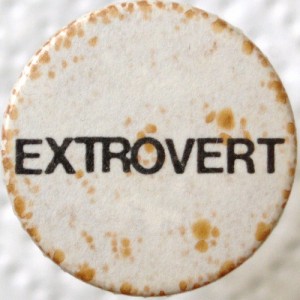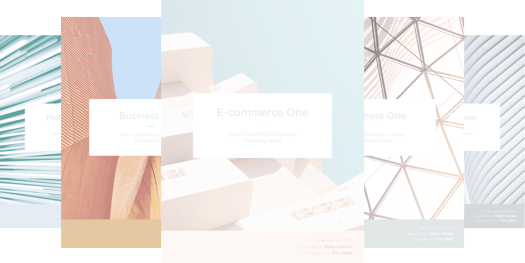Your personality is a pretty basic thing – you are who you are, right? Which means that sometimes, as a freelancer, the way you do things isn’t necessarily the way that you need to approach them to succeed. We’ve all been there, and have regrets about the way we approached a particular situation or client.
But in reality, your personality – whatever type that might be – can be your greatest asset if you just understand how to use it to your best advantage.
Myers-Briggs dissections of your inner self are pretty complex, so we’ll simplify things a bit here, because it can actually be pretty tough to work out which of these 16 types you are. We’ll look at seven basic personality types (you will recognize yourself in here somewhere!) and give you some great tips for boosting your success in business.
1. The Extrovert
You’re the life and soul of the party, outgoing and social. You don’t mind putting yourself forward or giving your opinion. Who wouldn’t want that?
Work-wise, you’re lucky. Statistics show that extroverts earn more. You’re not afraid to blow your own trumpet, and that’s one of your great strengths. When you’re pitching for a project, you’re not afraid to say how fabulous you are.
This is all great, but remember to temper your approach with realism – don’t make claims you can’t make good on, or you’ll disappoint clients and gain a bad name.
Extroverts can also be pushy, which is a help if you have a client that needs a nudge to commit. However, you have to learn to read the signals other people give you – if your client feels you’re hassling them unduly, it could cause resentment. Use your natural friendliness and confidence to create a rapport, so your potential clients warm to you and trust your judgment.
2. The Introvert
Introverts do have a hard row to hoe when it comes to work. Singing your own praises can be tough, and pushing yourself into the limelight seems downright unnatural.
However, introverts also tend to be methodical and patient, and work well alone – so in many ways you’re well suited to the world of freelance work.
Create the time and space you need to make decisions by planning any meetings well ahead of time, and anticipate potential questions by thoroughly researching potential projects before you pitch.
You’re a great listener, and clients really appreciate this. Capitalize on it by making notes and asking questions that show you’ve listened to, and understood, their messages.
3. The Doer
Outgoing and blunt, you’re a practical person who believes in jumping into a project and getting things done. You’re great at making decisions and getting things done quickly.
You also tend to be better at improvising than at forward planning, so get into the habit of using a project planning app to ensure you don’t miss an important stage in your work in your rush to finish.
Leverage your practicality to impress clients with your ability to see all the practical benefits and downsides to their plans. You are probably best suited to practical work rather than anything theoretical, which you will find tedious.
4. The Thinker
At the opposite end of the spectrum, thinkers are like introverts – reserved and quiet – but in addition they are systematic, rational, and logical, with little time for the mundane daily grind. Step forward, Mr. Spock!
Among your best characteristics are your ability to analyze situations and projects. Impress clients from the outset with your grasp of the detail of their proposal, and your ability to get to the heart of complex tasks.
Your inability to remember practical stuff like your own birthday, let alone anybody else’s, means that when it comes to project deadlines, you are going to need a great calendar and task app (like Wunderlist or 2Do) to keep you on track.
5. The Feeler
Seen as the opposite to a ‘thinker’, you follow your intuition and are likely to be highly creative, sympathetic, and subjective – with a well-developed sense of what’s right and wrong.
You need to take on projects that you are passionate about, and communicate your enthusiasm to prospective clients. Because you have great empathy, you are good at understanding how they feel about their work – let them know you are in their corner and in tune with their vision. You’re also a great mediator, so look for opportunities where this talent might be useful.
Because working out the detail of a pitch can be tough for you, proposal software like Bidsketch can help you to ensure you’ve included everything you intended to, and got all the details correct.
6. The Organizer
Dependable and neat, you’re the loyal one who makes sure that while everyone else is doing their wildly creative thing, food is ordered for lunch and the meeting room is hired for the appropriate time. Which is not to say that you can’t create, just that you like to make sure the foundations are there as well!
You like to have a set of rules to play by, so clients who go ‘off-piste’ with abrupt changes of plan and strange demands may throw you. Try to have a general plan of action in place for when this happens – as it will.
The good news is that your personality type, while sometimes underrated, is really key to the success of any project. Explain to clients how their workflow should be ordered, and what’s needed to get their project on the ground.
7. The Flexible One
You’re the one who thinks out of the box and knows what to do when the unexpected happens. You can adapt to almost any situation and work well with all clients because you have a deep inner pragmatism that helps you to get on with things as they are – rather than as you might prefer them to be.
One of your great advantages is that your job performance doesn’t depend on how great your project or client is. You don’t get depressed when things aren’t going well – you just get on with it.
Because you are good at troubleshooting, choosing challenging projects that others might balk at, and offering solutions up front to the problems that could arise, you will gain extra work.
Conclusion
There’s no such thing as a ‘good’ or ‘bad’ personality type, but it’s important to understand your own strengths and weaknesses. In summary:
- If you’re an extrovert, use your sociability and charm to get clients on side.
- If you’re an introvert, use your listening skills to let clients know you understand their brief.
- If you’re a doer, impress clients by grasping the practical issues they face.
- If you’re a thinker, use your analytical skills to showcase your exceptional approach to complex tasks.
- If you’re a feeler, use your passion to show your commitment to clients’ visions.
- If you’re an organizer, lay out the groundwork for projects to ensure success.
- If you’re flexible, use your troubleshooting skills to best effect in challenging projects where you can spot solutions to difficult problems.
Do you have any other aspects of your personality that you find useful in winning work? Let us know via the comments section below!
Image Credit: chrisinplymouth.


